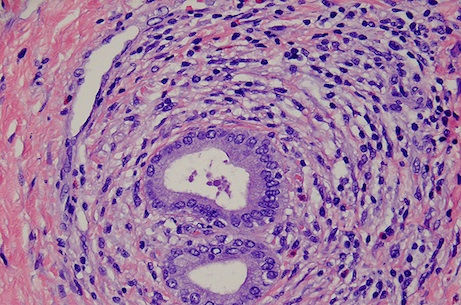
Siddhartha Kar is lead author on a paper which identifies the genetic underpinnings of primary biliary cirrhosis.
An international team of scientists that included Gates Cambridge Scholar Siddhartha Kar has shed new light on the genetic underpinnings of the most common autoimmune disease of the liver, which causes scarring and cirrhosis and can require a liver transplant.
Primary biliary cirrhosis or PBC is a disease in which the body’s own immune defence system attacks the ducts that drain bile from the liver. It primarily affects women over the age of 40 years and is thought to affect 1 in 4,000 people. PBC has no known cure and existing treatments only slow the progression of the disease. Many advanced cases require a liver transplant.
The scientists’ findings will be published later this month in the journal Genes and Immunity from the Nature Publishing Group and could eventually open the way for new treatments targeting the causes of PBC.
Their study analysed genetic data from over 2,300 individuals, including nearly 1,000 patients diagnosed with primary biliary cirrhosis in Canada and Italy. The scientists compared those with and without the disease using a newly-developed statistical approach to identify molecular pathways that are associated with the risk of developing PBC. Two bio-molecular pathways were independently associated with the disease in the geographically distinct Canadian and Italian patient subgroups.
Siddhartha Kar [2012], who is lead author of the study and doing a PhD in Public Health and Primary Care, said: “Although these findings are preliminary, the identified
pathways expand our current understanding of PBC. They are promising candidates
for further exploration as potential targets for measures to prevent and treat this chronic autoimmune disorder.”
The paper is based on his master’s thesis at the University of Texas, Houston. His research was supervised by Professor Christopher I. Amos of Dartmouth College who is the senior author of the paper.
The study was supported by grants from the United States National Institutes of Health, Hypergenes – European Network for Genetic-Epidemiological Studies (co-funded under the European Commission’s Seventh Framework Programme), the Canadian Institutes for Health Research, the Ontario Research Fund, and the Canadian PBC Society.
Picture credit: Terrortoma and Creative Commons












